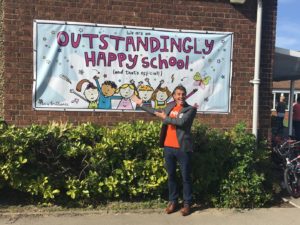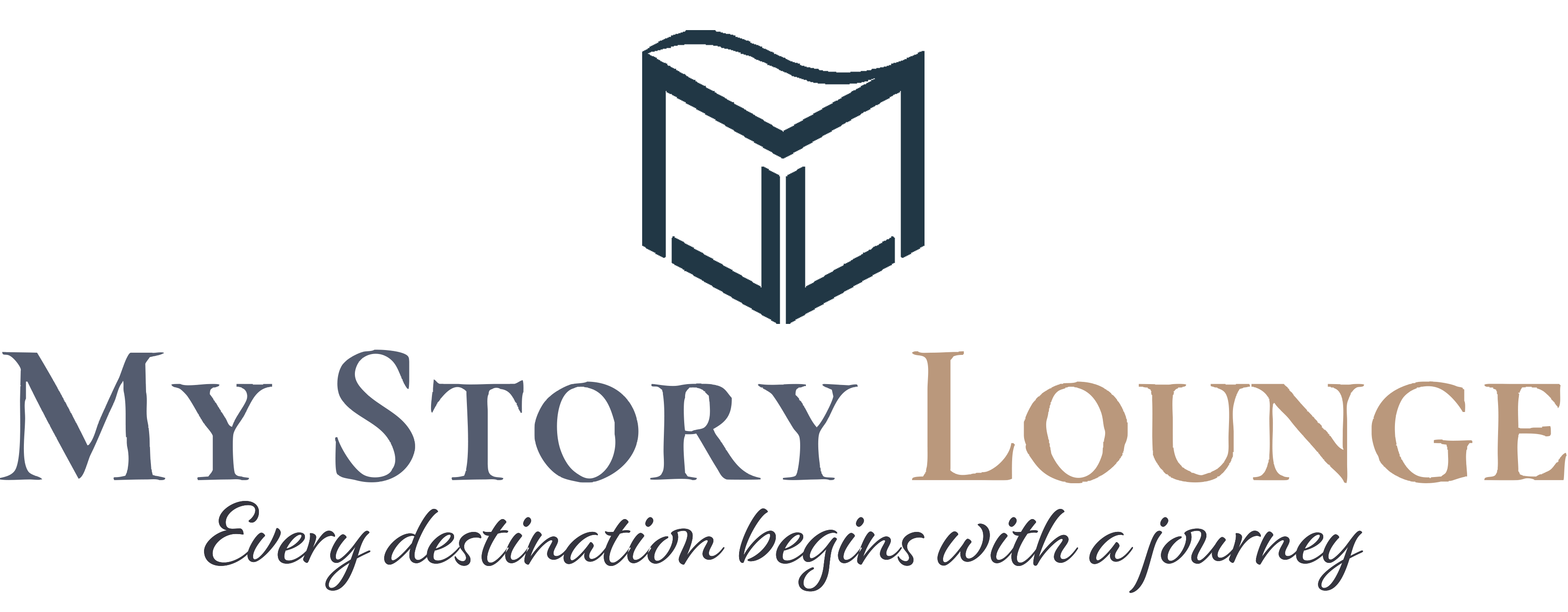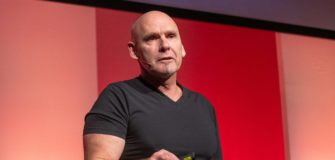‘Doctor Of Happiness’ – Andy Cope
Share
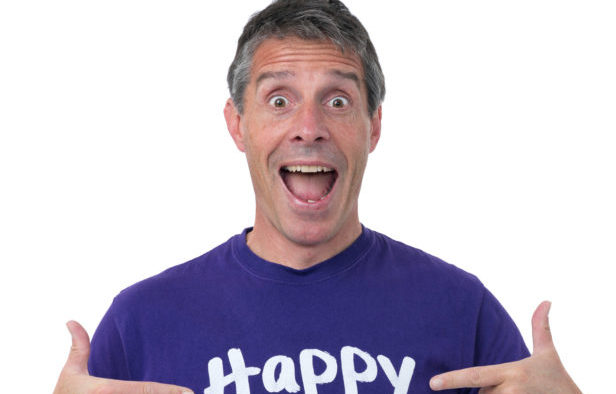
“Here’s the truth. Being a positive, effervescent, inspired human being is hard work. But it’s not half as exhausting as being miserable.”
“Doctor of Happiness” is a title Andy Cope doesn’t take lightly. After all, his thesis was twelve years in the making before he finally completed his PhD at Loughborough University, UK, majoring in positive psychology.
More broadly, Cope describes himself as a qualified teacher, author, happiness expert and learning junkie. He set up a training company in 2005. ‘Art of Brilliance Ltd’ to deliver a wide range of positive psychology and wellbeing programmes to businesses and schools around the world. His flagship programme, ‘The Art of Being Brilliant’ became a best-selling book in 2012.
Subsequently, he has penned other books like ‘Be Brilliant Everyday’ and ‘The Art of Being a Brilliant Teenager’, which helps individuals tackle the topic on how to become happier, more motivated and positive.
On the heels of the success of his wellbeing programmes and bestselling books, he has also worked with large organisations like DHL, Kelloggs, Hewlett Packard, Astra Zeneca, Lego, L’Oreal, Nationwide and UEFA, among others.
In times of rising depression and an epidemic of ‘busyness’, he challenges all of us to discover joy and happiness in each of our lives despite what goes on around us. We caught up with Cope to find out what it means to be truly happy and the secrets to happiness.
EARLY LIFE
Tell us more about your family background and share with us on what it was like growing up.
I was born in England but my childhood was spent in Ghana, West Africa. My dad got a job as an engineer in the Ashanti gold mines so we moved there when I was four. After Africa we moved to Saudi Arabia, then back home when I was a teenager
At 16 I’d had enough of school so I left and got a job as a welder. That was the kick up the backside I needed! After learning how tough the real world was, I returned to college and flourished.
My university girlfriend became my wife. We have been married for nearly 30 years with a grown up daughter and son.
How did your upbringing shape the person you are today?
We were (and still are) a very stable family unit. I think the Ghana experience gave me a love of adventure and travel. For example, our honeymoon was a year-long backpacking trip that took place across 16 countries.
How would you sum up your childhood?
Wonderful. If you’re reading this, thanks mum, dad and little sis.
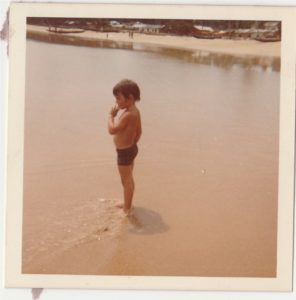
JOURNEY
How and why did you decide to become a qualified teacher and author. More importantly, why the focus on kids and positive psychology?
Like most people, I struggled with the ‘what do you want to be when you grow up?’ question. I drifted through a few jobs, including teaching. My lucky break came when I chanced upon adult education and started to deliver sessions on the brand new subject of ‘Positive Psychology’. This flipped my approach, and subsequently my life.
Whereas traditional psychology had always studied what was wrong with people (phobias, disorders, anxiety, depression, etc), I now started to look at what’s right with people (happiness, energy, gratitude, purpose, etc)
This led to a PhD in ‘Wellbeing and Human Flourishing’, a new career and umpteen books. I’m particularly keen to bring the science of happiness and flourishing to teenagers and children, hence I’ve written ‘The Art of Being a Brilliant Teenager’ and ‘Diary of a Brilliant Kid’. May as well get them into positive habits early on!
Along the way, what were some hard decisions you faced and challenges you had to overcome?
Walking away from a perfectly good career in academia to ‘do my own thing’ was a huge gamble. Anyone who’s ever set up their own business will know what I mean! You start with no customers, no salary, no pension… just a dream!
But the biggest challenge was actually my PhD. I took it on at a time in my life when I was starting a business and had two young children. It was tough on my wife. I’d never have become a ‘Dr of Happiness’ without her unwavering support and the sheer hard work that she put into keeping the family fed, watered and happy.
Share with us some experiences/stories that you think are significant to your journey so far.
Here’s a 100% true story that I recount in my new book ‘The Happiness Revolution’. This was a significant learning experience for me…
It had been my most hectic working year ever and I found myself in a bizarre situation of flying to Australia to do a keynote. As ridiculous as it sounds, the plan was to land in Melbourne, do my thing, and fly back to the UK the same night.
I had a 4-hour stopover at Changi Airport in Singapore and rather than wait in departures, I noticed there was a ‘butterfly garden’, so I went there. It’s an amazing place! I found a bench and made myself comfy.
It was the most ‘un-airporty’ scene. I was sitting under a tree, listening to the waterfall and watching the butterflies. A short while later a bunch of school kids came into the enclosure, aged about 6, causing a disturbance of the peace.
The children took one look at the butterflies and set about chasing them; jumping, running, whooping with glee. We’re in an indoor bubble. It’s pretty warm. The kids are soon drenched in sweat as they continue to leap and grab at the butterflies. None of them caught a thing.
Except for one child. It took me a while to notice but one of the kids was standing in the corner of the atrium, totally still. And this child was covered in butterflies.
Which got me thinking about happiness. I was just like those kids who were running, leaping and chasing after the butterflies. I was exhausting myself. I was in hot-pursuit of happiness but never actually catching up with it. Maybe I should take a leaf out of that child’s book and slow down. Maybe if I learned to be still, be at peace and in the moment, then happiness might finally catch-up with me.
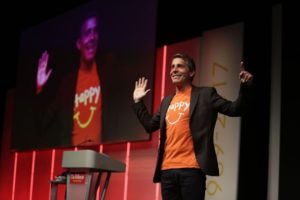
ACHIEVEMENTS
Which achievements/milestones are you most proud of?
Little did I know that my 21st birthday would turn out to be the most important day of my life. While celebrating with my mates, I also met Lou (who later became my wife).
My kids came along in 1995 and 1998 respectively. I’m super-proud of who they have become and what they’re doing with their lives.
Art of Brilliance Ltd began in 2005. It started out as me and has now grown to a team of 25. We’re a bit like The A-Team; an odd assortment of wellbeing mavericks who want to make a difference
We set up ‘Brilliant Schools’ in 2016. Our main training business is not-for-profit so we plough money into Brill Schools. The aim is to get wellbeing, resilience, happiness (etc) embedded in the next generation.
In summary, we are an exporter of happiness. Our flagship keynote/webinar, The Art of Being Brilliant’, has received rave reviews worldwide. We’ve delivered training in 22 countries
As a business, we’ve survived the financial crash of 2008 and the 2020 pandemic. In fact, we’ve not only survived, we’ve become more creative in how we operate, taking our webinars and workshops to the next level and growing as a business.
I’m super-proud of all of that.
What do you think are the key ingredients to your success, as an author and trainer?
My #1 attributes are hard work and determination. I have also been blessed with some huge dollops of luck along the way.
I suspect that success has come my way because I’ve got good at being me. I’m not trying to be fancy, clever or fake – what you see is what you get. This also applies to my success as an author. I’m not a fan of big words or heavy academia, so I ‘translate’ all that nonsense into simple, do-able principles.
Basically, for me it’s always about trying to bring a light touch to a heavy subject.
You have worked with kids, teachers and corporations among other entities. What are some successful case studies you could share?
Our approach is always to help customers (whether it’s businesses, schools or individuals) embed positivity into their lives. My research into Positive Psychology has given me insights into how human beings can live their best lives. I like to think that the PhD gives me some academic credibility, but more importantly our success comes from translating the research into everyday language.
I’m proud to say that we have hundreds of success stories. Our workshops, webinars and keynotes genuinely make a huge difference to people’s lives. One of our clients whom we have helped to transform their workplace, is currently rated as the number one best place to work in the UK.
I’m also thrilled that we have a growing band of ‘Outstandingly Happy Schools’ who’ve used our programmes to bring wellbeing into classrooms, staff rooms and their communities.
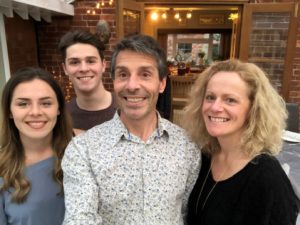
PERSONAL (LIFE)
To you, what are the most important things in life?
Family time is at the top of my list. I’ve also become a collector of experiences. I have got off the materialist treadmill. My happiness isn’t linked to buying more stuff, it’s about appreciating the things I already have and enjoying experiences with the people I love.
What’s worth mentioning on your bucket list that you have not done?
In 2019, I took a sabbatical and spent 3 months travelling in India. I bought a motorcycle and went north, into the Himalayas. Every day was an amazing adventure.
I attempted a particularly challenging route called the Rohtang Pass. I got so close to completing the route but fell off my motorbike at 6,000 feet and in the end, I never got to the top. That mountain pass remains unticked on my bucket list! I will return to India and complete the Rohtang Pass as soon as I can.
Why do you do what you do? (What drives you everyday)
There’s a huge difference between a job, career and calling.
A job – is when you’re doing it for the money. It’ll feel like a chore.
A career – is more rewarding. Your employer will invest in you. There might be a career path to follow. But salary is still important.
A calling – is when you love what you do. This is when work doesn’t feel like work and although they’re paying you, the truth is that you’d probably do it for free.
For me and my company Art of Brilliance, it feels more of a calling than anything else. Me and my team are a merry band of mavericks who share a passion for wellbeing and happiness. I am out delivering training every single day and writing books by night. I absolutely love what I do!
Who are the role models and influences in your life?
That’s a really good question. I’ve never really thought about it. I guess I’m influenced (impressed) by people who dare to be different, who follow their dreams and who battle on, against the odds
What are some things that many people don’t know about you?
I support a rubbish football team called ‘Derby County’.
In addition to my Positive Psychology work, I also wrote a series of best-selling books for kids.
My ‘Spy Dog’ series has sold a million copies worldwide.
I’m currently working on a writing project with Bear Grylls.
What are some life lessons you will take to your grave?
Be a nice human being, even to other human beings who aren’t so nice.
My 7-word mantra is: ‘do it better than you have to’.
Be a good friend’ – to yourself.
Live an interesting life. No one wants to talk to an old person with no stories to tell.
No one’s perfect, but everyone can be awesome.
Hard work and effort will always take you farther than talent.
What are you most passionate about in life and why?
I’m passionate about life itself! The average lifespan is 4000 weeks. If you’re not careful, life can speed by in a blur.
That’s why I’m focused on living it well, and helping others upgrade to their own ‘best possible self’.
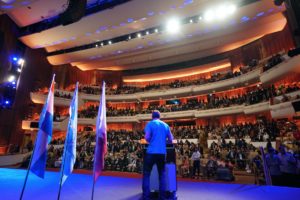
VIEWPOINTS
In your personal opinion, what is the essence of happiness?
What does it mean to be truly happy in its most fundamental terms? Happiness takes many forms.
There’s a continuum of happiness from ‘wild elation’ at one end to ‘quiet contentment’ at the other. I think permanent ‘wild elation’ would be exhausting so, for me, true happiness takes the form of quiet contentment.
Being happy – in this moment – with who you are and what you have
How do you think schools and the education system can better incorporate positive psychology into their curriculum?
Having studied happy people for over 20 years, I can assure you that they’re not feeling amazing by accident. They’re feeling amazing because they deploy a whole bunch of strategies that allow them to feel amazing. Therefore, happiness and flourishing are learned behaviours.
The smallest change that would have the biggest difference in the education system – is to put ‘wellbeing’ on the curriculum. If children, teens and teachers knew how to take care of their happiness and wellbeing, they would be in a much better position to deal with whatever life throws at them (Plot spoiler: life will throw A LOT at you!)
For someone who is chronically pessimistic or depressed, getting to feeling true joy and happiness can be quite a leap. What small steps do you suggest such a person takes to move in the right direction?
For me, it’s about small attitudinal choices that we make moment-to-moment. You can’t control what’s going on around you (the world can be brutal, unfair and unforgiving) but you can learn to take better control of your reactions. Gratitude, purpose and creating strong personal relationships, are all crucial to raising your ‘wellbeing standard’.
If you’re on meds or in therapy, I think you should continue to access professional help. The majority don’t need medication or therapy, they just need some gentle reminders about how to shine in a world that seems hell bent on knocking the passion out of them.
